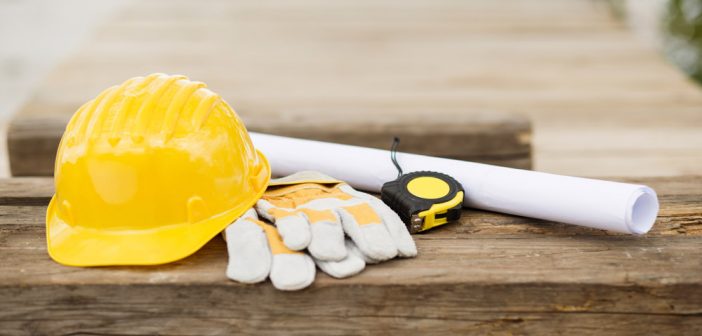DIY home improvement projects can save you a lot of money and can give you a feeling of satisfaction but can quickly go wrong if proper precautions are not taken. You can never be too careful when it comes to safety. Follow the helpful tips below in order to avoid a DIY Disaster.
Wear Appropriate Clothing
Always wear the appropriate clothing for the job that you will be doing. Ditch any clothing that is loose, has dangling strings, or anything that can get caught in the moving parts of power tools. You should not wear watches, bracelets, dangling earrings, necklaces, or scarves. Do not wear flip-flops and certainly don’t go barefoot. Wear shoes that are comfortable and have your toes covered, preferably hiking boots or work boots.
Wear Appropriate Safety Gear
The most common injury from DIY projects is objects flying into the eye. At the very least, this leads to a scratched cornea. At its worst, it can cause permanent blindness. Safety glasses with side shields can help prevent these injuries.
If you are using loud power tools, wear earplugs, it takes less noise than you think to cause damage. Appropriate gloves are another necessity; make certain that all of your skin is covered. Heavy denim jeans can help prevent many types of injuries. If there is a chance that you could be hit on the head by a falling object, wear a hard hat.
Never Work When Tired
Being overtired can slow down your reaction time significantly. If something goes wrong, you may not react as quickly as you would if you were fresh and alert.
Always take your time, do not rush to get the job done. This only increases your chances of having an accident and instead of finishing your project. It is always better to wait for another day after you have had a good night’s sleep.
Environmental Hazards
Preventing environmental safety hazards should be one of the top items on the list. Some of the most common accident types are slips or falls. Keep the work area neat and tidy to eliminate tripping hazards, such as extension cords or tools that are not in their proper place.
Always practice fire safety, solvent covered rags or oils can easily catch fire with a spark. Keep flammables such as paper away from heaters and do not plug too many extension cords into an outlet. Make sure the outlets are approved for the type of equipment for which they will be used.
Be aware of the materials that are you are using and always make certain there is proper ventilation when using solvents or when painting. Never mix two chemicals together, unless the instructions say that it is safe to do so, this can cause unexpected chemical reactions that create dangerous fumes. Keep windows open and use a fan to move the air.
Read All Instructions
It is especially important to read all instruction manuals on power tools. Get to know your equipment before you use it.
Emergency Plan
Having a plan in case of an emergency can save valuable time and potentially save a life. You should also always keep a first aid kit handy, just in case. Most importantly, it is important to know your own limits. Some jobs are best handled by a professional. If you are uncertain about how to do the job, or it involves techniques or equipment with which you are not familiar, it may be best to throw in the towel and hire a professional. This may not only be the best decision for your safety, it can also save you the headache of a job that does not meet your expectations.








